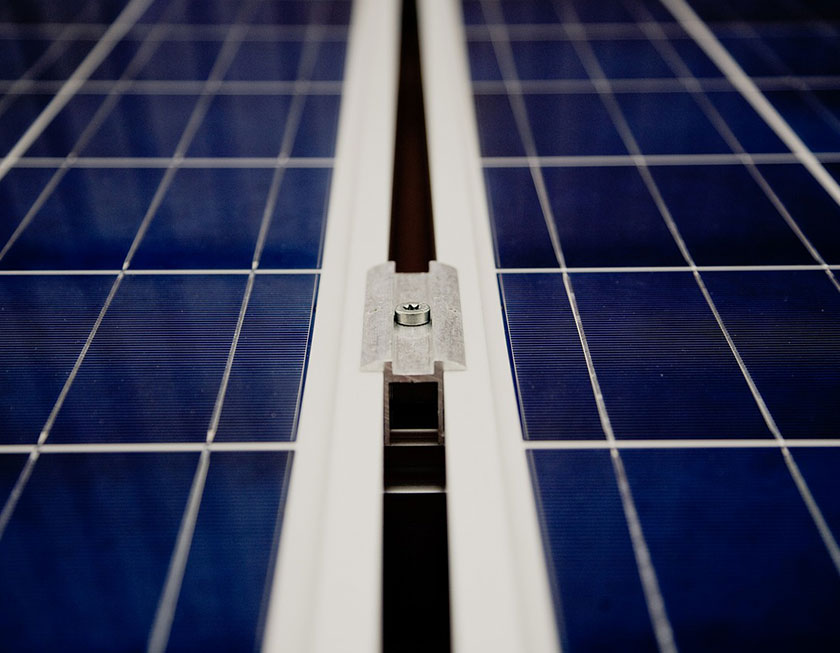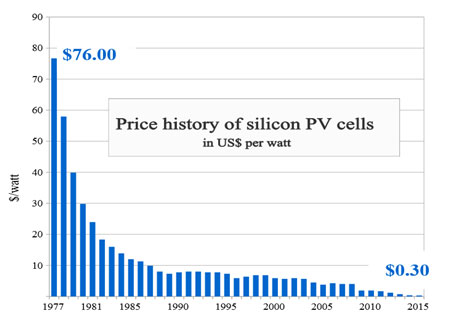3.2 Solar hot water or solar photovoltaics

Is your energy bill trying to exhaust your wallet?
If so, your hot water system may probably be the most destructive appliance to your hard-earned money. Switching to a renewable energy source for producing hot water would be a wise decision which would noticeably bring down your spending on energy (Note that electric water heater accounts for the highest electricity consumption of an average house with an electric water heater).
We have several options to produce hot water namely solar, gas instant, electric, and gas storage systems, etc. Among them, use of solar energy is more economical and more environmentally friendly.
It is known to all that both solar hot water systems and solar photovoltaics are sustainable approaches and offer quick financial returns on investment. Although we individuals are always looking for financial benefits, the environmental benefits offered by both technologies are often ignored but cannot be measured in the greenback.
What is the most advantageous solar energy technology available for water heating?
It is quite a controversial question.
One cannot determine the best technology considering only one or two factors. Simply, several factors are to be considered.
Let’s pick them one by one.
- Initial investment and payback time
This is the most important factor when choosing a technology for water heating. The payback time of both technologies depends on the location, climate, and also energy policies of a given country. Solar hot water systems still offer the quickest payback even with no government subsidies.
Even though payback time of solar photovoltaics is slightly greater than that of solar hot water systems, their manufacturing cost dropped dramatically in the recent past. The cost has been continuously falling with time and thereby reaching the payback time of solar hot water systems.
- Economics of two technologies
Today, an apple would be cheaper than a mango.
But tomorrow, mango may be the cheapest!
Time changes everything!
The rule is common for solar energy technologies too!
A decade ago, use of solar hot water systems for heating water was more financially beneficial than electric, gas-powered systems and solar photovoltaics. Solar photovoltaics were easy to be installed but took decades to offset the capital investment making them economically unviable for commercial uses.
Recent change in the price of solar photovoltaics, mimicking the way of meteoroids…
As we can see it in the following chart, the price of solar photovoltaics (price per Watt) has been falling from the sky and reaching the ground. It is a conspicuous drop in the price per watt!

Figure 1: Drop in the price of solar PV from 1977 to 2015 (Source: Bloomberg-New-Energy-Finance [1])
Both technologies were being developed and are still being developed. However, the solar photovoltaic technology could reach several milestones and has made dozens of major breakthroughs during the recent past and it is now wiping out the pride of solar water heating technologies though payback period of solar photovoltaics is still quite greater than that of solar hot water systems. In particular, the price gap between two technologies (per Watt) would be continuously decreasing if the current trend would not change in future.
- Lifespan of the system
Although the payback time of solar photovoltaics is slightly higher than that of solar hot water systems, solar photovoltaics have an unbeatable lifespan of 25-30 years whereas solar hot water systems last within 10-15 years.
- Energy storage
Another advantage of solar photovoltaics is that the excess electricity generated by the system can be exported to the grid via existing transmission lines. The householder is paid for the amount of electricity he feeds to the grid or as a compensation, he may consume the same amount of electricity from the grid for free, in future. The concept is smart and eliminates the necessity of a backup system to store excess electricity.
Solar hot water systems, on the other hand, need a tank to store hot water.
- Space needed (Space efficiency)
This would probably be the only concern when choosing a technology for water heating in future as solar photovoltaics technology continues to advance in terms of other mentioned factors. Solar water heating systems are interestingly efficient at collecting solar energy and converting into useful heat. As such, they require a significantly less amount of roof area than a solar photovoltaics do.
Less roof area for water heating means you have more roof area to install solar panels on your rooftop.
Is that all?
Not at all.
Just think
Which should I choose?
Why do I wear a wristwatch just to have a sense of time?
Why do I carry a calendar just to have a sense of date?
Why do I carry a map just to have a sense of location?
Why do I carry a bulky dictionary just to find a meaning of a word?
Why do I carry a phone just to make a call?
While my smart phone can tell me the time and date, can help find a place or meaning of a word, can help communicate with others… and many more
Solar hot water systems
- Cannot pump water from your well
- Cannot light up inside your home
- Cannot charge your electric car
- Cannot charge your mobile phone
- Cannot supply electricity to your television laptop, iron, refrigerator, television or any other electrical appliance.
Solar hot water systems offer you nothing but hot water. In contrast, solar photovoltaics convert solar energy into electricity which can power any electrical appliance.
So, comparing solar hot water systems to solar photovoltaics is like striving to compare apples and oranges!
Conclusion
Solar photovoltaic technology has been able to revolutionize today’s energy industry thanks to the abrupt fall in their prices. Although their payback time is quite high compared to that of solar water heaters, solar photovoltaics are born with a silver spoon in their mouth. They are long-lasting. So, they are more cost-effective than solar water heaters. They provide more energy and cut more greenhouse gasses within their life cycle. Excess electricity can be fed to the grid and the house holder would be paid and thus they do not need a backup to store excess electricity generated.
Especially, if you are out of your home for a longer period, your solar hot water system would be doing nothing but would be heating and be circulating the same water from the tank. In such a case, it is far beneficial to have a solar photovoltaic system than having a solar hot water system.
Taking all these factors into consideration, it can be concluded that the benefits of solar photovoltaics far outweigh their trivial drawbacks.
It would be wise to have a solar hot water system to produce hot water if your rooftop is already covered by solar panels as solar hot water systems are more space efficient than solar photovoltaics. In any other case, solar photovoltaics offer the best package of benefits.
References
